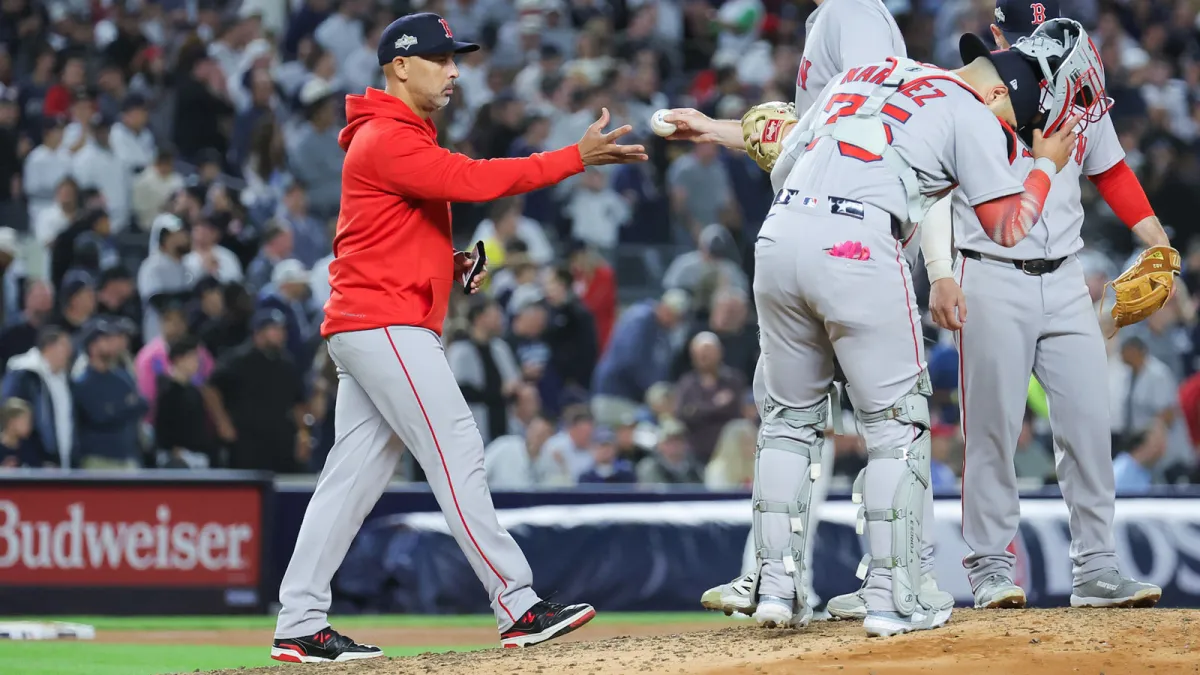The Boston Red Sox turned heads across the baseball world last offseason when they made a bold move to sign veteran infielder Alex Bregman in free agency. The addition of a player of his caliber a proven postseason performer and former World Series champion was seen as a statement of intent by Boston’s front office, signaling their determination to return to contention in the American League. However, in order to lure Bregman to Fenway Park, the Red Sox had to include a player-friendly clause in his contract an opt-out after the first year. That decision is now proving pivotal, as Bregman has exercised that option and reentered free agency this winter, putting his future with the team in question once again.
This development adds a layer of intrigue to what was already shaping up to be one of the most fascinating offseasons in recent Red Sox history. After a year in which Boston made strides toward becoming a playoff contender again, Bregman’s decision could significantly alter the franchise’s direction. The 31-year-old third baseman was one of the team’s most consistent and valuable contributors throughout the 2025 season, and his leadership both on and off the field made a lasting impact on a relatively young Red Sox roster.
According to The Athletic’s Jim Bowden, Bregman is expected to command a massive payday on the open market — potentially in the range of $182 million. That kind of deal would give him long-term financial security as he continues through his prime years. Bregman’s combination of offensive reliability, defensive steadiness, and postseason experience makes him one of the top names available this winter. Teams looking for a franchise cornerstone at third base will undoubtedly make aggressive offers.
However, there’s a growing belief that Boston remains the frontrunner to retain him. MLB.com recently conducted a poll of 46 writers and analysts, asking where Bregman is most likely to sign. The results leaned heavily toward a Red Sox reunion, with 43 percent predicting that the star infielder would stay in Boston on a long-term deal. MLB insider Mark Feinsand summarized the consensus sentiment: “Bregman opted out of his Red Sox contract, but a plurality of our voters believe he will return to Beantown.”

Feinsand also reminded readers that Boston initially signed Bregman to a three-year, $120 million contract last February. It was a significant investment that immediately paid dividends, both in terms of performance and leadership. Yet, as Bregman himself admitted, his signing with Boston was not a sure thing at the time. He revealed that he came “really close” to inking a deal with the Detroit Tigers before ultimately choosing the Red Sox. That admission adds an interesting twist to the current situation, as Detroit is expected to be one of the leading contenders for his services this winter. Many around the league believe that the Tigers — an emerging team with a talented young core — could make a strong push to finally land the veteran third baseman they nearly signed a year ago.
For the Red Sox, the decision of whether to re-sign Bregman isn’t just about numbers or payroll flexibility. It’s about the identity of their team moving forward. During his first season in Boston, Bregman quickly became the anchor of the lineup and a vocal presence in the clubhouse. Even though he missed about six weeks in the middle of the season due to a right quadriceps strain, he still managed to post impressive numbers: a .273 batting average, 18 home runs, and an .822 OPS over 114 games. His steady production and professional approach gave the Red Sox a level of consistency they had been lacking in recent years.
Defensively, Bregman continued to shine at the hot corner, recording +3 Outs Above Average, according to Statcast. His quick reactions and dependable glove helped stabilize Boston’s infield, which had struggled with defensive miscues in previous seasons. But beyond the numbers, what made Bregman’s presence so vital was his leadership. Teammates consistently praised his preparation, intensity, and baseball IQ qualities that helped raise the standard inside the Red Sox clubhouse. For a young team still finding its identity, having a veteran leader with championship pedigree proved invaluable.

That’s why many inside the organization view Bregman as more than just another free agent. He represents the kind of player who can shape a culture, influence the next generation of Red Sox talent, and serve as a bridge between the franchise’s storied past and its promising future. Boston’s lineup features several young players with upside, but having an established star like Bregman to set the tone has been essential to their growth.
Still, retaining him won’t come cheap. The market for elite infielders is always competitive, and Bregman’s track record ensures he’ll have multiple suitors. Teams such as the Tigers, Cubs, and Giants are expected to be in the mix, each offering a combination of financial resources and competitive aspirations. Detroit, in particular, has been searching for a veteran leader to complement its young core of hitters and could view Bregman as the missing piece that elevates them from promising to legitimate contenders.

From Boston’s perspective, the question is less about whether they can afford Bregman and more about how aggressive they’re willing to be in retaining him. The Red Sox have the payroll flexibility to match or even exceed any offer he receives, especially with several large contracts coming off the books. What remains to be seen is whether the front office is prepared to commit a long-term deal approaching or surpassing $180 million. Given the team’s recent struggles to maintain consistency in both performance and roster stability, a major investment in a player like Bregman could serve as both a stabilizing force and a statement of ambition.
Boston’s new front office leadership has emphasized a desire to build a sustainable contender — one that blends established veterans with a developing young core. In that context, keeping Bregman makes perfect sense. His skill set, professionalism, and competitive mindset align with the team’s broader goals. Moreover, the Red Sox fan base has already embraced him as a central figure in the franchise’s resurgence. Losing him after just one year could be a blow not only to the team’s on-field performance but also to its momentum and credibility with fans.

Bregman, for his part, has expressed deep appreciation for his time in Boston. He’s spoken about how much he’s enjoyed playing at Fenway Park and how welcomed he felt by the organization and its supporters. At the same time, he’s also made it clear that he values stability and wants to compete for championships. If the Red Sox can convince him that they’re positioned to contend over the next several seasons and back that up with a competitive offer they’ll have a strong chance of bringing him back.
There’s also the matter of legacy. Bregman has already achieved a great deal in his career, including multiple All-Star selections and postseason success with the Houston Astros. But signing a long-term deal with Boston could provide him with a new chapter one where he helps lead a storied franchise back to glory. For a player who thrives under pressure and enjoys the spotlight, Boston provides the kind of stage few other markets can match.

In the end, this decision will likely come down to how determined the Red Sox are to keep their star third baseman. They have the resources, the need, and the opportunity. What remains uncertain is whether they’re willing to go the extra mile to ensure Bregman’s return. For now, the baseball world waits as one of the most intriguing free agency sagas of the offseason unfolds.
One thing is certain: if Bregman does return to Boston, it would send a powerful message that the Red Sox are serious about contending right now. If he departs for another team perhaps Detroit, the club he nearly joined a year ago it will mark the beginning of yet another new chapter for both sides. Either way, Alex Bregman’s next move will have ripple effects across the league, shaping not only the Red Sox’s future but also the competitive landscape of Major League Baseball for years to come.





